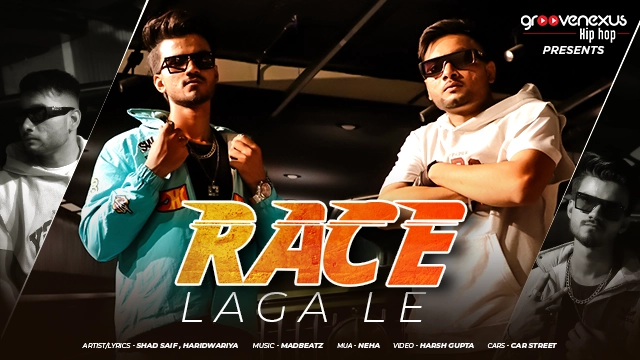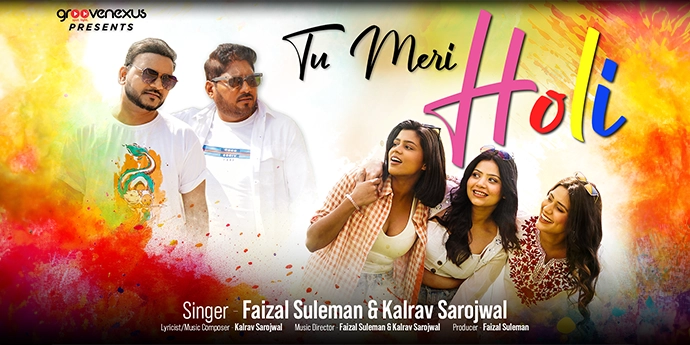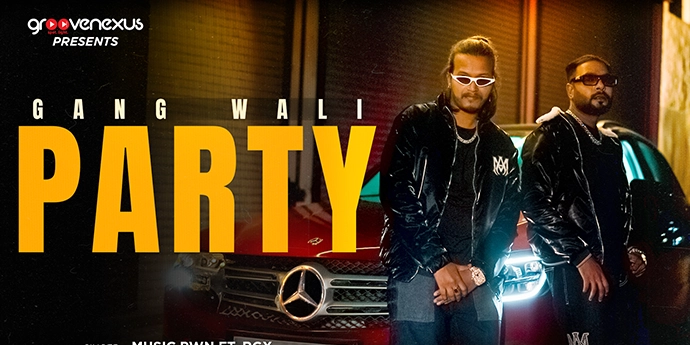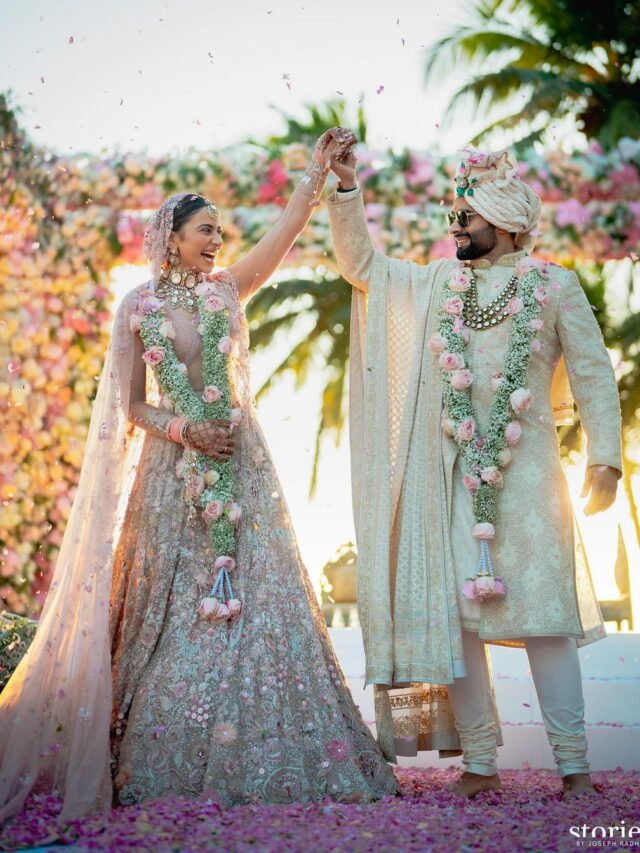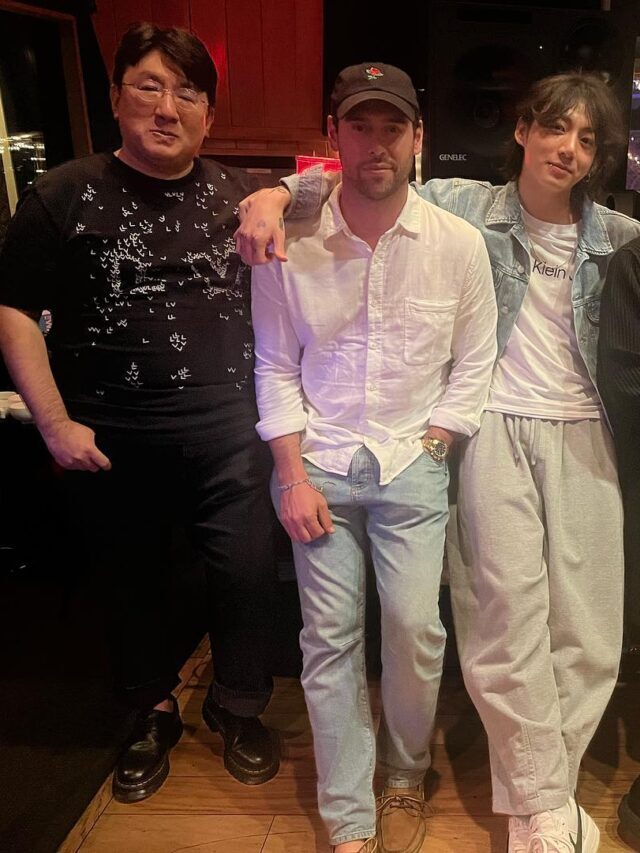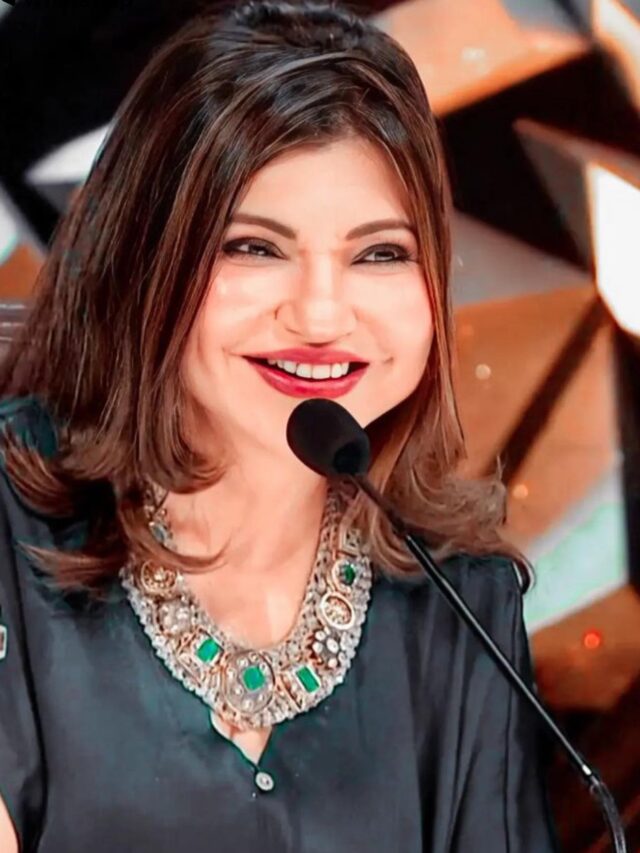DJs add life to already existing records. To do so, a DJ needs to match his musical expression with popular music. But, it has more than just that or getting a hold of beats or refurbishing songs. It is about speaking volumes to your audience to a level of ecstasy.
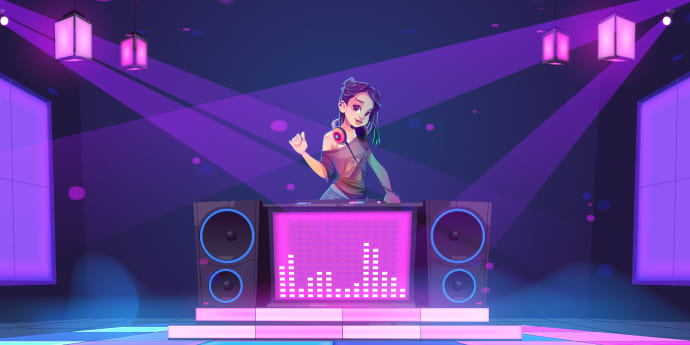
Back in the day, the idea of trying your hands on a vinyl record was sacrilegious. But early DJs like Grand Wizard Theodore, Kool Herc, Grandmaster Flash have pioneered the techniques we now take for granted and got the party crowds dancing with their artistry. Scratching, Breakbeats, punch phrasing, and looping are the skills of the DJ. You can learn them all and they are the best way to start DJing and to get started if you want to participate in disc jockeying. Learn from basic skills and the equipment required to develop and build your fanbase and experience into a potential career.
In order to gain the basics of DJing, a beginner DJ should consult good tutors and learn the dj career essential requirements that start right from Basic skills like fading beat and phrase matching etc. should be the first lessons to be learned in the process of how to become a DJ. Volume fading enables a smooth transition in between songs. Counting beats to match the BPM (beats per minute) of songs is next. Also, learning how to isolate and alter a piece of music, like the bass line, is essential. In scratching, the turntable is used to create music out of an existing recording. Scratching is an expert skill that takes a lot of practice and is considered a crucial process of becoming a DJ.
Nowadays, there are numerous self-taught DJs. They learn via online classes or tutorials available online, in the form of both written/audio/video tutorials. No wonder, with a lot of technological advancements, the beginners guide for DJing is easily available on the net. There are several schools across the sub-continent offering classes for aspiring DJs. But, what matters the most is the experience garnered by DJs by regular live performances to sharpen your skills. There are no certification or license requirements whatsoever, to become a DJ. It is only about practice and practice.
DJs sharpen their efficiency by hard work and practice on the equipment (hardware and software) they use to mix music. Technological advancements made it a piece of cake, for example, the software available for beginners and aspiring DJs. DJs use a combination of hardware and software to mix music, and part of their training period is vested in learning how the usability of these tools. While many still use Vinyl Records in hardware, software making digital sampling easier. Every DJ develops a patent technique in the play between hardware and software.
If you are an aspiring artist, know what you need to be a DJ, follow the steps that will help in music production:
- First and foremost, know precisely why you want to be a DJ. Genuine interest and in-depth knowledge are needed. (Read about different genres of music)
- Take inspiration from other DJs. See what they do and how.
- Learn and practice the tools to mix music on free versions of Virtual DJ, Mix, Tractor, etc. before finally purchasing the licensed versions.
- Begin with learning basic skills such as beat-matching, mixing, EQing, and phrasing.
- Start recording your mixes and be open to criticism.
- Focus on building your audience and branding your style.
Not to mention that DJs must also put in tremendous efforts and time collecting music. This may mean collecting records or creation of digital collections for sets or even both, and that is a forgoing and expensive process.
It takes some imperative steps involved in how to become a DJ-
- Learning the Craft
- Gathering the equipment
- Work on music
- Social media presence
- Increase the following
- Be professional and make it your career
Let’s explain all the pointers above with a much ado and know the process of how to become a DJ-
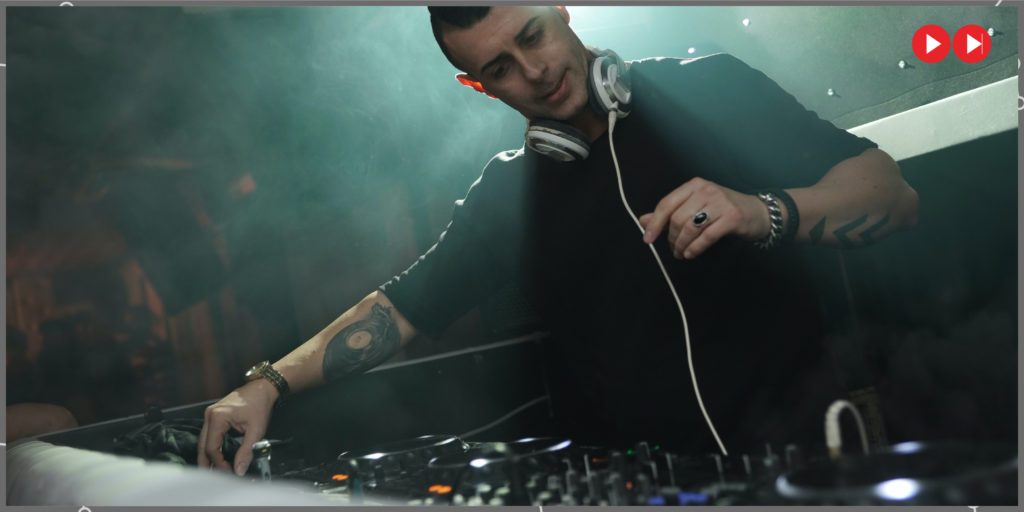
Learning the Craft
1. Keep up with current music trends
- To become viable in today’s fast-paced world, if you are an aspiring DJ, you’ll need to be on top of all the charts where it seems like the trends are going. You should be on top of the trends and leaning toward tomorrow and always be in a learning mode.
- You should constantly be writing notes to yourself. Finding out what song you just heard was and list down the ideas for later for your DJing. Always keep your phone and pen handy because inspiration calls when it pleases.
2. Be a multi-genre DJ
- You can be a specialist if you have multiple genres under your belt. With your creation, you become a specialist with logic. Most DJs are great at the single music genre. To become a pro at more than one set of music, your creation should be the cream of the crop.
- Instead of exploring only one or two clubs in the area, try to visit more clubs and go to weddings and parties to get to know the type of music people go gala over.
- You need to know the classics, deep cuts and the current stuff for every genre you do. Having a healthy and playful mix in your repertoire will keep the crowd attentive and bang on with their party shoes.
3. Decide in the beginning if you want to be a crowd-pleaser or a music specialist.
Certain gigs cater to different crowds. Say, a college crowd may want to hear Katy Perry when you’re just trying to forget Last Friday Night. Being a music specialist might give you more credibility with the DJs and make your gigs fewer and far between. One needs to master learning basic DJ skills that’s the first step in how to become a DJ at a young age.
- The songs that hit the taste if the bigger number of people in the crowd is called crowd-pleasing songs. The crowd-pleasing style is best suited to DJs and private events like weddings and parties.
Whereas,
- A music specialist sticks to a particular genre of music, regardless of what the crowd demands. Usually, DJs who play in nightclubs and have specific genre mixes that they play in the crowd.
4. Think long-term
What’s going to start as an expensive hobby can turn into a huge career down the line. It is not a small feat that you are about to embark upon. To become a DJ is to devote years to working magic on others’ music. You can start in an hour, but you won’t get truly good for a long time. So, always learn to upskill yourself at every stage of DJing.
It is also not a Wednesday afternoon hobby. To develop skill and to level up the same, you need to be consistent and regular. Reading crowds and what kind of music surprise them is also an art that comes gradually with pace. If music boosts the minds, upskilling music mixing skills and visiting various events can help understand what the crowd wants.
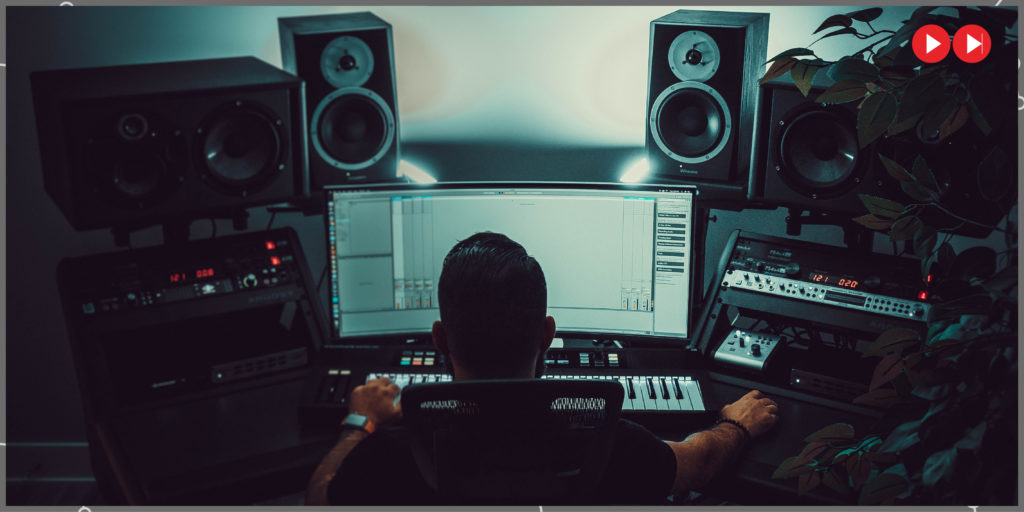
Gathering the equipment
1. The foremost requirement to become a DJ is to Start with the basics.
To become a DJ it requires you to work more than just playing songs. Learn how to structure, mix, and get the crowd moving on the developed beats that start with your deck. Later on, after mastering the skills as mentioned above, invest in bigger speakers, MIDI and a monitor, a controller, and an audio interface, plug-ins, mics, depending upon the types of music you will produce and play out. A bare-bones basic DJ setup requires the following:
- Headphones
- Speakers
- Two or more turntables or two CD players
- 2 Channel mixer
- Mixing software (if really required)
2. Decide if you want to go digital or analog
Traditional DJ set-ups revolve around direct-drive turntables for playing vinyl records. But nowadays, it is increasingly common to use straight and CD-style digital set-ups DJ-ing. Both methods have advantages and disadvantages and are equally effective for playing gigs and becoming a DJ.
- Digital DJ set-ups allow you to be highly mobile and convenient. In a Digital DJ, the learning curve is much smaller than expected. It is important to learn beat-match, and the transition will be much easier, like when it is done on a BPM counter and a software system.
Whereas,
- Analog set-ups allow you to DJing in the most traditional way. Learning skills like scratching a stylus against vinyl requires you to collect an ample collection of records to play that can be somewhat expensive.
3. Go for a mixing software package
Serato Scratch or Traktor are great programs which are helpful in reading any forms of music. They also help to select songs through a computer program interface. Pioneer and Numark offer various products you may want to look into eventually.
These programs enable you to access a library of MP3s on your hard drive and compliment your vinyl and CD selections. These programs give live looping and scratching capability, reverberations, delays and real-time control, video and karaoke options.
Ableton allows you to connect mixing controllers via USB cable and operates like the classic DJs in your head. It’s good for beginners who take baby steps to become a DJ with some budget conscious.
4. Be economical
As a beginner, don’t invest much in top-notch equipment right away. In the beginning, most of your money should be spent on mixers and turntables. Refrain yourself on purchasing all the equipment at the same time and spend wisely. Buy the decks is first step on how to start DJing and want to use and the mixer you want for DJing.
If you’re serious about your passion for becoming a DJ. There are chances that there might be a few people with the same profession in your area and want to make a name in the industry. Approach them and advise them with tutorials on how to become a DJ. Take sessions and narrate them different ways of becoming a DJ.
5. Build a big collection of music
Apart from the equipment for mixing, you need music. To be a legit DJ, you’ll eventually need to shell out some amount and pay for the music you will use for mixing. Firstly, work with what you have. But after knowing that it will be an expense later, you need to spend some more on the same. To become a mixing expert, you need to have some set of songs that the crowd relate up your friends, colleagues, consult the charts and acquaintances, YouTube channels, and record companies and websites catering especially to DJs such as Beatport.
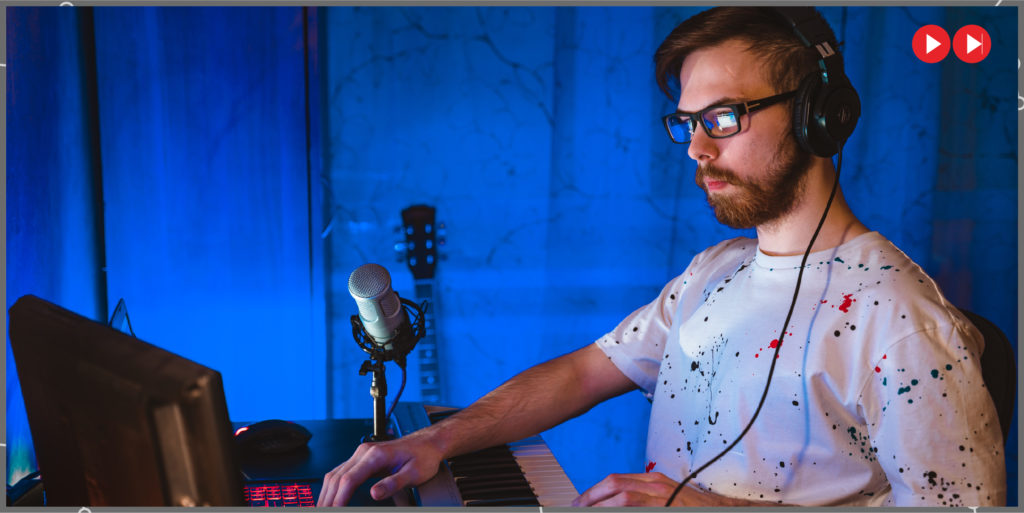
Work on music
1. Keep it simple at first.
When you’re starting out first, make music mixing easier by sticking to two songs which are 3 BPMs of each other. One should also use two songs having same key. It depends on the software you use to create a DJ mix of your choice. Nail that down, start experimenting with looping, and then gradually move on to your toggle function and add adding effects.
- Be assured to experiment with the different methods on your mixer. To make the most out of your music and beautiful effects, there is more than a single way to do them effectively. There are two ways to mix a music, think of it and do it and the second way is to create it and automate it with the mixing software.
2. Learn the BPM of the songs you play.
- Beats per minute or BPMs in a song determine how smoothly and easily you can mix it with another song. With a stopwatch, you can calculate the BPMs yourself. But it is quite tedious. Some mixers have a BPM counter on the board, while DJ software mostly calculates the BPM of tracks. However, the count is not accurate 100% but helps to give a sense of BPMS on an average.
- You can use a pitch warp to match it with the beats. Although it is best to select two songs that are only a few BPMs off. Use it on the song that doesn’t have vocals. The changes happening with the keys (Speeding up the music or slowing it down) mess with everything.
3. Learn the intros and outros
Learn the intros and outros of dance songs where vocals are not at the beginning of the song and corresponding to the outro at the end. Mixing and song missing usually mean blending one song’s intro with the outro of another song. Identifying when an outro starts and an intro begins is challenging and tricky during live beat mixing.
Here’s how you can do it- Cue up the second song. You need to get your second song ready as soon as your first one is winding down. Then, you can use one hand on the turntable or the CD player’s pitch and adjust speed.
4. Learn how to scratch
The decks need to be used to find a place in a song when they are queued up. Learn the baby scratches and scribble scratches, drags and scratches that work at various pitch levels. Try to put them all down before you head out there.
A few songs at certain places act as prime for scratching, while others are terrible for it. It is an art to know when to scratch is like comedic timing and when it’s right and when it’s just wrong.
5. Smooth transition between the songs
One of the most important parts of DJing is transitioning between the songs whose beats matches each other. Matching the Beats remains constant that let people continue dancing continuous and uninterrupted. Using conventional DJ hardware involves listening to the second song’s intro, moving the pitch slider until the song gets played at the same speed. Afterwards, cueing the song simultaneously with the previous song is an essential skill that a DJ should know.
- You also need to adjust the volume levels as per the songs. The song you are mixing will be played at full volume. So, you need to adjust the volume slowly and listen to subtle and ok tunes to ears.
- It is bad practice to mix vocals over vocals. So, missing beats with vocals should be the right practice to avoid awkward noise. This is why you should be familiar with song’s intros and outros.
- Digitally, it’s possible to use beat-matching software available online, which can make this job automatic. The songs should be within a few BPM of one another. It’s still good to learn how to do it analog, since this is a fundamental skill.

Social media presence
The world is going digital. Increase and enhance your social media presence by creating a website. Make pages on all the social media platforms like Instagram, YouTube, Facebook, Twitter, Linkedin etc. Start publishing your creations across the channels to reach out to the masses.
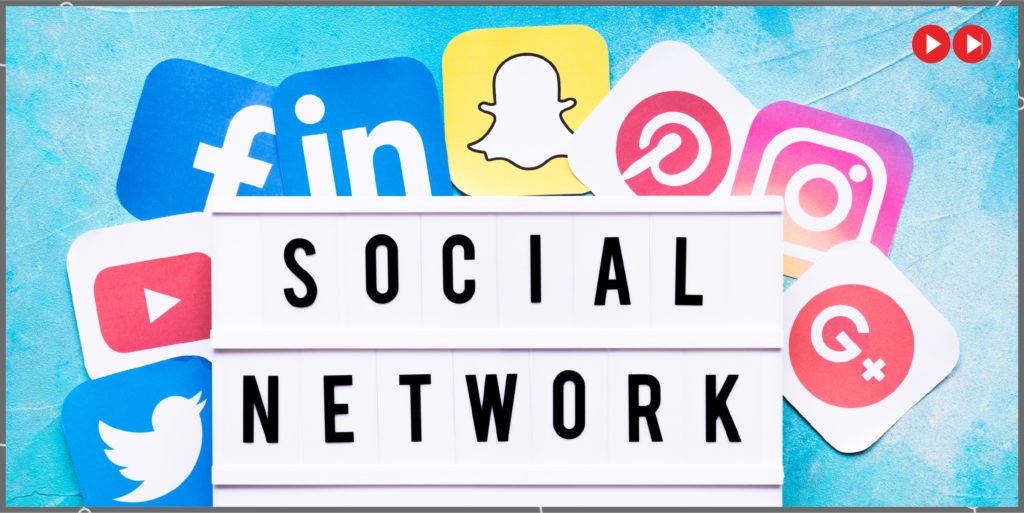
Increase the following on social media channels
A DJ or aspiring should be aggressive in establishing social media presence across verticals.
Hire a photographer and ask him to take quality pictures of you while DJing and random pictures. Learn the basic of editing your pictures and with various tools. Embrace it on social media and keep your account open for all. The best way is to take pictures with a lot of gatherings having blast at the party. It will create an impact on your fans and will be proof of your marketability.
The pro tip on getting more engagements on your handles is to post in a coherent manner and consistently. People try to go out on weekends so, try to create a buzz around your event.
Using your contacts and in-person networking, when your posts start getting some engagements, try to engage key persons while focusing on other DJs for collaborations and co-branding. Be an active follower and commenter on your local venues, DJ channels and promoters of the events. Give credits to Bars and clubs. They are most likely to give you a shot and brand value when they know your work and understand that you can bring a crowd in.
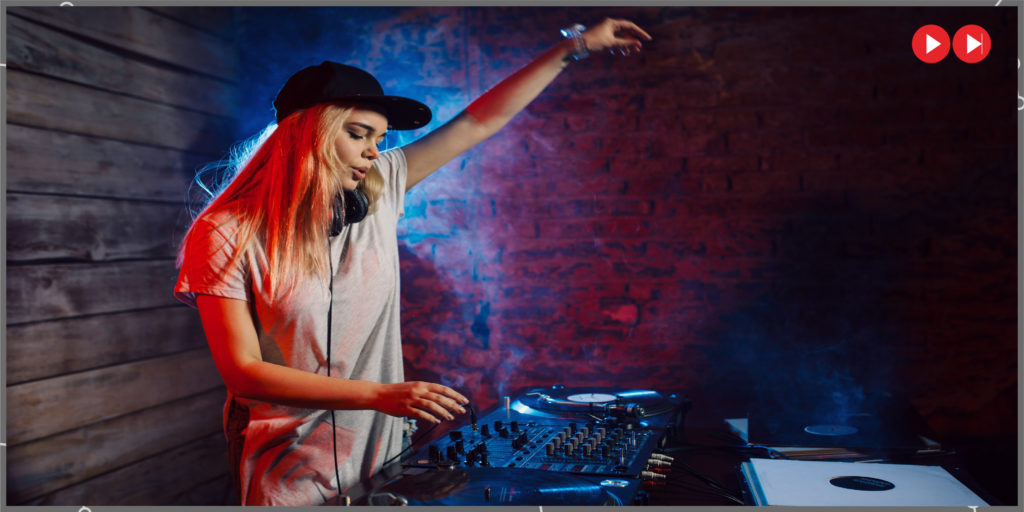
Be professional and make DJ-ing your full-fledged career
1. Get recurring hours.
Just like a pilot needs to build up flight time to get cred, you will have to build up playtime as a musician. The easiest way to DJ is in recurring hours through an established company. Not just those one-off gigs. To do so,
- Find music companies that supply DJs for weddings and events. There, you won’t be freelancing but getting your foot in the door.
- Sign up to work with local schools and colleges or community radio stations.
- Some events and venues need bands and DJs together. Market yourself.
2. Market yourself.
Market yourself to make your presence in all the popular press kits, hand out business cards and send it across the same community, email constantly, and try to expand the network as much as possible. Don’t take it as a job. It is a 24/7 process that will help you to establish yourself in the music community.
As you start gaining a fan base, keep this process as an ongoing activity and play as many shows as necessary. Set up your name out in the market is essential. Keep your schedule tight to keep the your interest going and creativity fresh. In a nutshell, take whatever gig you can at the beginning.
3. Keep track of the crowd and event you’ll be DJing for.
To have an idea of who your crowd is, before commencing the event is critical to make you a successful DJ. In case you are playing for a wedding, be prepared to play more slow songs first and then try to speed up. Grasp on the bride’s musical tastes some days in advance and then make your list ready to play in the event.
In case you are playing in a nightclub, familiarise yourself with the club owner first. Ask him about the crowd that hops in the club, what they prefer to listen to, and what relates to the song. Do they prefer listening to the regular ones from the DJ’s list or keep the club afloat with their preferences?
- Ok, after receiving the requests, be careful with the request. If you’re playing a nightclub that only relates to hip-hop playlists, someone unfamiliar with the scene who is requesting a song that doesn’t fit the genre. Consider their request carefully before you play their tracks. Always remember, your aim is to keep the core of the audience happy and bouncing back.
- Try to visit the venue beforehand.
4. Become a producer.
- The next step up after being a DJ is producing music on your own. That’s the next foot forward in the process to know how to become a DJ Producer. You can work with others’ tunes, but you’re mashing it up, try to remix it, listen to the track and then re-edit it and make it a better version than the previous one. You can rake in cash faster than when you start producing your stuff.
- And when it happens, you can hit up the record labels, even if you don’t end up being a top-billing artist. As a producer, you can also work with other artists and explore behind the scenes what you love doing.
If you want to become a successful DJ, here is a list of genres to explore:
- House
- Trance
- Techno
- Electro
- Glitch
- Dark Alternative
- Progressive
- Breakbeat
- Hardstyle
- Hardcore
- Downtempo
- Jungle
- Drum and Bass
- Dubstep
- Hip-Hop
There are a few electronic DJ equipment you should know while exploring the DJ category and which are helpful in the process of learning the art of DJ-ing. Not just parties, or events, there are a significant category of DJing that is reputed in the community. Radio DJs are making a mark in their category and earning fame. The entire concept of Radio DJing owes its origins to radio. Looking at the fame of radio DJs, many youngsters have also joined the league to learn the famous art of DJ ing and how to become a radio DJ.
A radio DJ’s job varies from one category to other and that’s why it is essential to know the perspective from one person who announces the weather in between songs to full-on music curation. While many corporate radio DJs have lost control over the music, the art lives on in podcast format now. So, it carries from storytelling, new music releases, DJing covers it all.
DJ Equipment
Learn more about the below most widely-used DJ equipment to produce good music in an event that may help you in how to become an electronic DJ :
- DJ Controllers
- Decks
- DJ effects and samplers
- Headphones
- DJ interfaces
- Mixers
- Speakers
- Turntables
- Earphones
- Handheld Recorders
- Portable and USB turntables
- Rackmount CD and Media Players
- Sub-woofers
Know more about most-happening EDM festivals. Here is a list of popular EDM festivals:
- Tomorrowland
- Ultra
- Burningman
- Sunburn
- Weekender
- VH1Supersonic
- Magnetic fields
Build your Playlist for Parties
To become a DJ know more about favorite DJs, EDM music, latest songs and create your playlist for upcoming parties. Start playing at local parties/ events near you like the new year, Christmas and other festivals.
Figuring Out What To Charge For Your Events:
Well, this can be tricky as well as subjective. It depends on a lot of factors such as your following, the kind of music you promote, the type of event, the venue, the amount of effort and time you are putting in, and also your audience.
An average DJ for a musical night kind of event charge approximately 15,000 – 25,000 INR but, that again, is subjective to the hours and your fan following.
DJs or disc jockeys should also love music and try to create new forms all the time for new set of crowds and events. Many people love music, but their love for music is confined within the limits of listening and maybe singing. Know the common qualities of DJs and what do they exactly do to give life to the parties and surroundings by providing the perfect beats to the songs with their spectacular talent.



